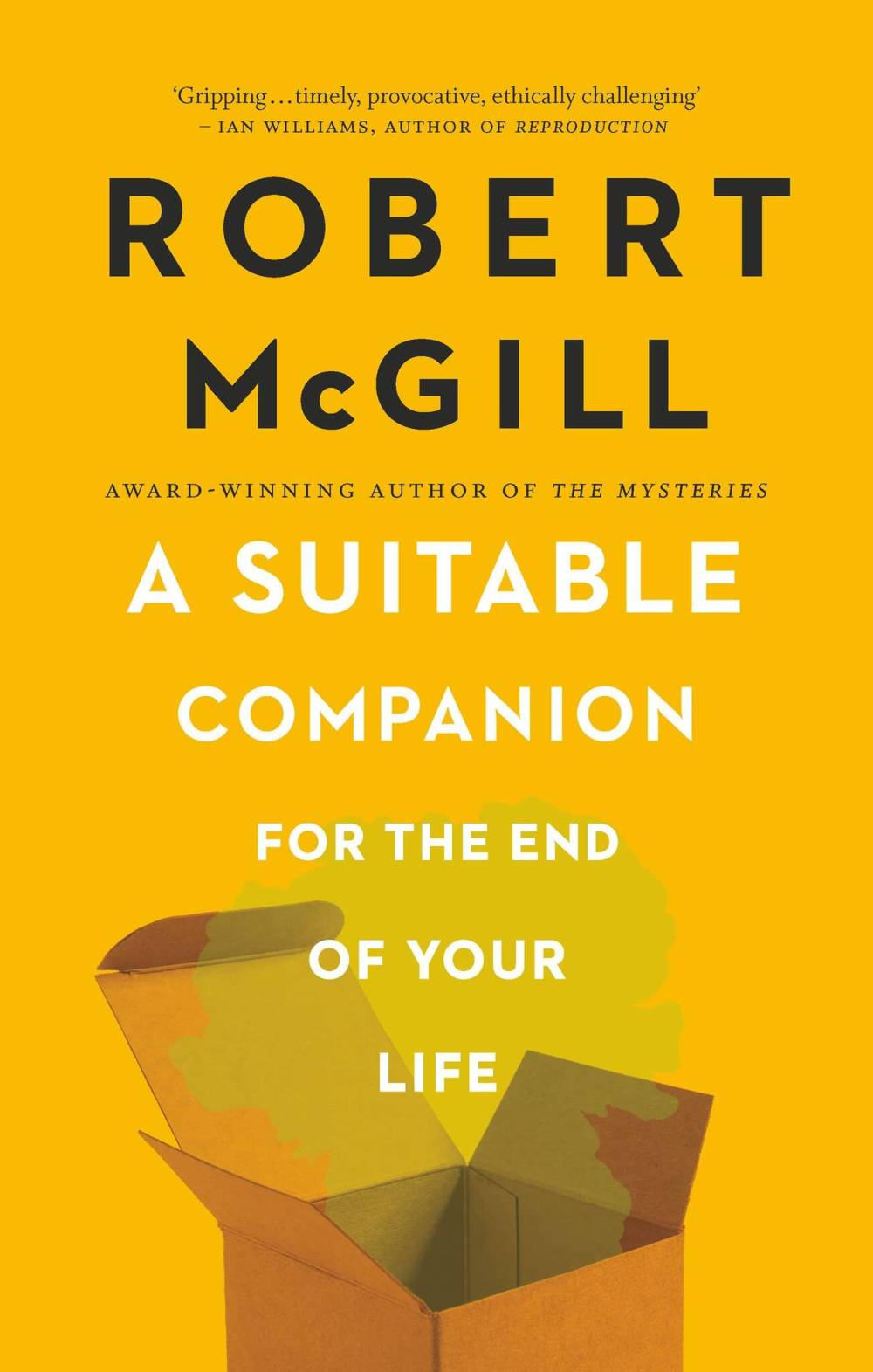Near-future pandemic story packs a punch
Advertisement
Read this article for free:
or
Already have an account? Log in here »
To continue reading, please subscribe:
Monthly Digital Subscription
$0 for the first 4 weeks*
- Enjoy unlimited reading on winnipegfreepress.com
- Read the E-Edition, our digital replica newspaper
- Access News Break, our award-winning app
- Play interactive puzzles
*No charge for 4 weeks then price increases to the regular rate of $19.95 plus GST every four weeks. Offer available to new and qualified returning subscribers only. Cancel any time.
Monthly Digital Subscription
$4.99/week*
- Enjoy unlimited reading on winnipegfreepress.com
- Read the E-Edition, our digital replica newspaper
- Access News Break, our award-winning app
- Play interactive puzzles
*Billed as $19.95 plus GST every four weeks. Cancel any time.
To continue reading, please subscribe:
Add Free Press access to your Brandon Sun subscription for only an additional
$1 for the first 4 weeks*
*Your next subscription payment will increase by $1.00 and you will be charged $16.99 plus GST for four weeks. After four weeks, your payment will increase to $23.99 plus GST every four weeks.
Read unlimited articles for free today:
or
Already have an account? Log in here »
Hey there, time traveller!
This article was published 25/06/2022 (1289 days ago), so information in it may no longer be current.
Robert McGill’s second novel, 2013’s Once We Had a Country, was one of those books that should have sat high on all the Canadian prize shortlists. A wise, uncompromising novel, it is set during the time of the Vietnam War, as a young would-be filmmaker and her draft-dodging boyfriend start a commune in Canada, and then watch their utopian dream slowly implode.
A Suitable Companion for the End of Your Life, a much slimmer book, still packs a punch. McGill once again lets his characters struggle with the kinds of moral problems that make his work so compelling. But this time, instead of looking back to 1972 before his birth, he looks forward into a near-future.
The novel takes place in Tkaronto — the place names (Oronhyatekha, Wonscotonach Valley) having been indigenized, though Rosedale is still hanging onto its old name. In McGill’s future, 18-year-old Regan wants to die. Her selfish father wants to escape drug rehab, her mother remains distant in both senses of the word, and Regan herself feels that she is nowhere. Choosing among the online suicide options, she orders a flatpack to be delivered to her home.

Flatpacks are McGill’s black-humour updating of cryogenics. If you’re an Eastern European dying of a plague — “the worm” — you can pay to have your body undergo a chemical process that deflates you like a leftover Christmas yard ornament and sends you to the West. In A Suitable Companion, the hope is that once a cure for “the worm” is found you can be reinflated, cured and continue merrily on your way. Of course, it’s mostly people from poorer countries who need flatpacking.
Re-animation commences when someone blows into a little spigot behind the flatpack’s ears. But the flatpacks also apparently exude fatal gases; bad news for most blowers, good news for potential suicides.
To Regan, a flatpack seems, an easy route to a painless death; the seller has assured her flatpacks don’t remember their pasts, so she doesn’t think of these sacks as persons. But Ülle, the flatpack who is deposited at Regan’s door, starts calling Regan “Mama,” and then recovers bits of her past life.
Through “the worm,” McGill makes visceral and distressful the global division between haves (able to depend on strong health-care systems) and have-nots (who can’t evade “the worm”). He is at his best with the slow awakening of Ülle to consciousness, and with the moral struggle in Regan as she recognizes this peculiar immigrant as a person. Although Regan initially grapples with assisted suicide, her awareness slowly expands from justifiable self-centred concerns to questions of human rights, as she begins to see past her own troubles.
The novel is told both through Regan and through a woman who recounts Ülle’s life, and whose identity is a mystery until the very end. In Ülle’s section, we see what might make flatpacking enticing even for those without “the worm”: the difficulty of making a living, familial control, and videos of flatpacked people “being cared for by American families” and “cavorting with dogs and children.”
In its last quarter, the novel veers into thriller territory — exciting, but not necessarily a recommendation. The real interest lies in Regan and Ülle’s surprising, yet convincing, development of a surrogate mother/daughter relationship. That’s where McGill delivers.
Reinhold Kramer is a Brandon University English professor. His most recent book is Are We Postmodern Yet? And Were We Ever?

